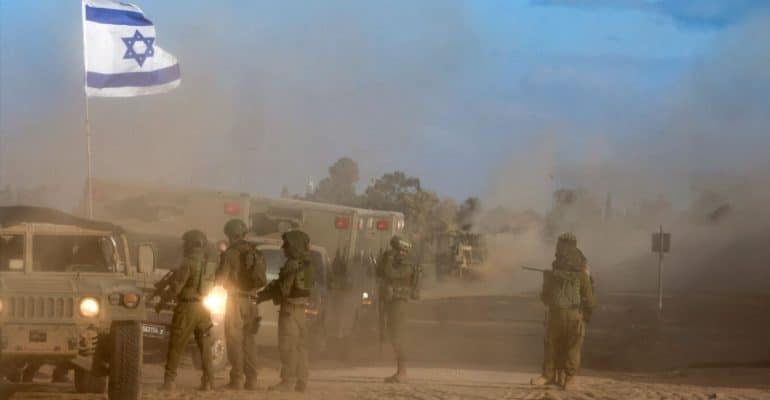The sirens in Israel have stopped sounding. With 99% of the attack drones and missiles launched by Iran – which kept its promise to avenge the deadly strike on its consulate in Damascus – shot down, all eyes are now on Tel Aviv: Will it respond, how and when ;
In yesterday's communication between US President Joe Biden and Israeli Prime Minister Benjamin Netanyahu, this was the "main course". Well-informed sources from Israel state that Pl
The Americans, who have made it clear that they will not participate in any retaliatory operation by Israel, are trying not to have continuity so as not to open the door of the madhouse in the region. After all, they have strong arguments. They proved in practice that their "iron alliance" with Israel is unshakable, just like the rest of the allies who helped the country's air defense during the attack. Especially at a time when there was opposition to the Israeli operation in Gaza.
President Joe Biden warned Prime Minister Benjamin Netanyahu that the US will not take part in a counter-offensive against Iran, an option that Netanyahu's war cabinet favored after a mass drone and missile attack on Israeli territory https://t.co/ikHKa4p74k pic.twitter.com/2CxfjkapU5
- Reuters (@Reuters) April 15, 2024
Moreover, the interception of the attack and the minor damage caused, downgraded Iran as a threat to Israel. This, the US is careful to communicate, saying that Iran is not the military power it claims or shows itself to be.
On the other hand, the "True Promise" operation of the Revolutionary Guards in Iran, as analysts admit, was carefully planned so as not to cause (even large) losses in lives, but mainly in military infrastructure. As well as that it aimed to give the Israelis time to manage it. And here's the key: The Israelis say the main target of the attack was perhaps Israel's most important air force base, at Nevatim in the north of the country. There, it is the base of the country's F-35s, the most important and technologically advanced aircraft.
This is what a 99% interception rate looks like. Operational footage from the Aerial Defense System protecting the Israeli airspace: pic.twitter.com/eAwcUPUDw2
- Israel Defense Forces (@IDF) April 14, 2024
This, perhaps, gives the Israelis the target of their own response. It could be the facilities where the Iranian drones are made. It could, alternatively, be Iran's nuclear facilities.
Another idea is now beginning to be strongly communicated in Israel: To use all of Israel's diplomatic arsenal to have the Revolutionary Guards designated by the UN as a terrorist organization. In such a case, they say, the "response" promised by Israel - and taken for granted - could be done with the support and participation of a multinational military formation.
The UN Security Council has called an emergency meeting after Iran launched unprecedented attacks against Israel. Iran says it was retaliation for a deadly strike on its consulate in Syria. pic.twitter.com/SgvI63LE9o
- DW News (@dwnews) April 14, 2024
To this, Iran's allies are showing early that they are prepared to strongly oppose it. It is characteristic that in yesterday's debate at the UN, China's ambassador to the United Nations Dai Bing stated that the previous attack on the Iranian consulate in Syria (with seven deaths that Iran attributes to Israel) was "extremely vicious in nature". China also expressed "deep concern" over Iran's attack on Israel and called for "maximum calm and restraint" from all parties. China's statement also called for an immediate ceasefire in Gaza and said the "humanitarian catastrophe" there was "unacceptable".
This is one scenario. The other, wants Netanyahu to once again ignore the advice of the American president and proceed with the - promised - response to Iran. But also because of this, Israel's War Council is divided in terms of time and intensity.
Source: protothema.gr
